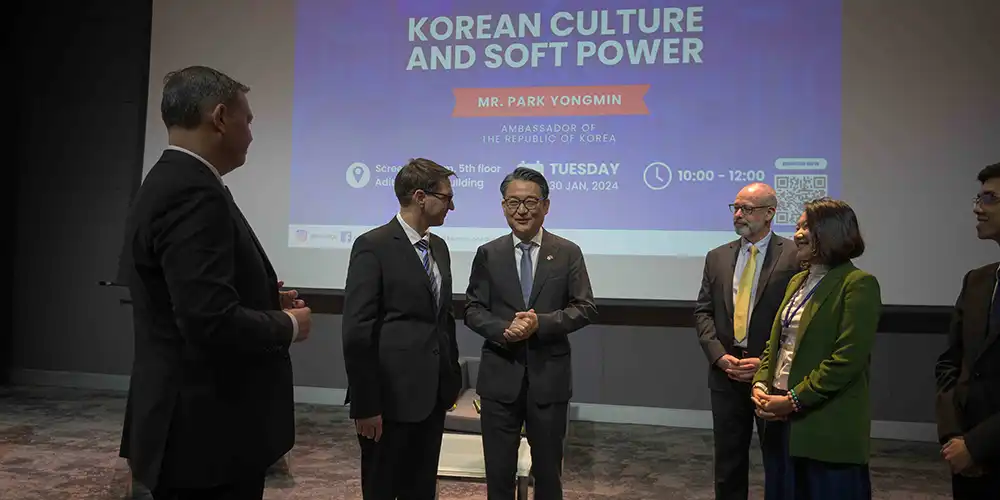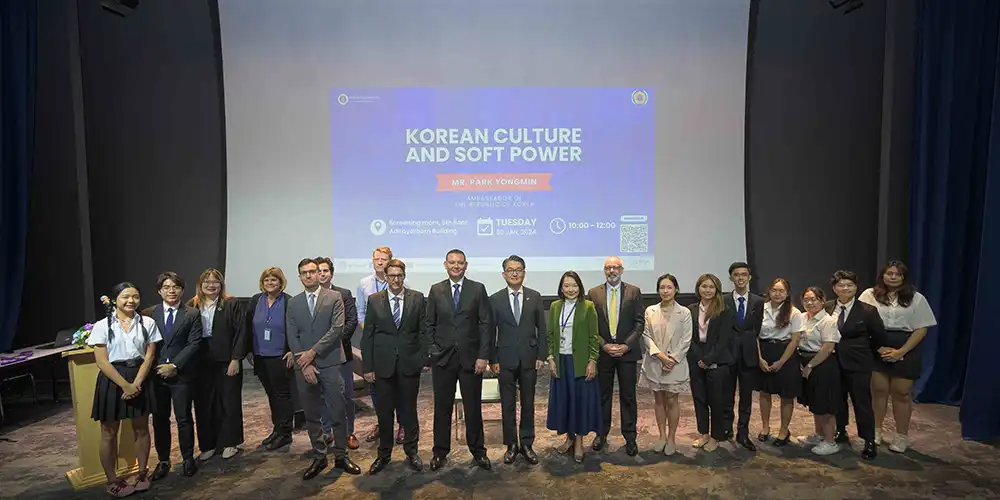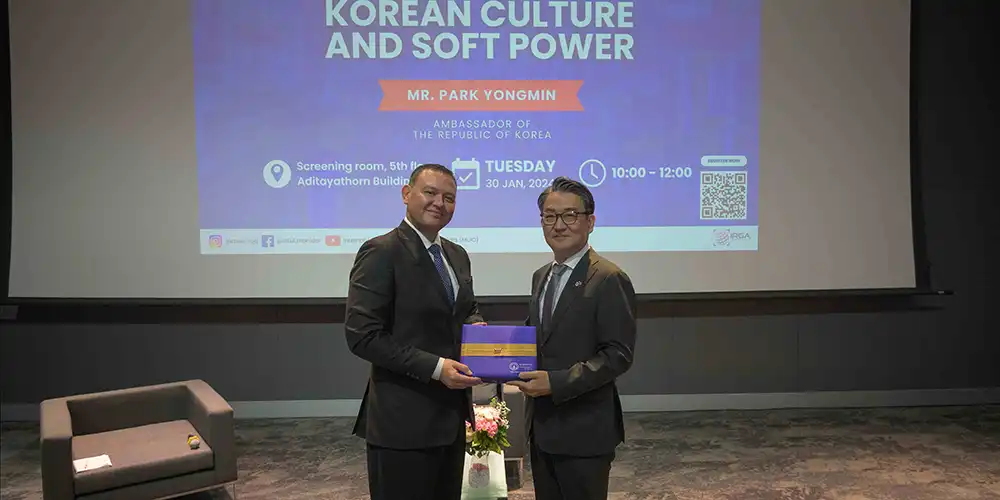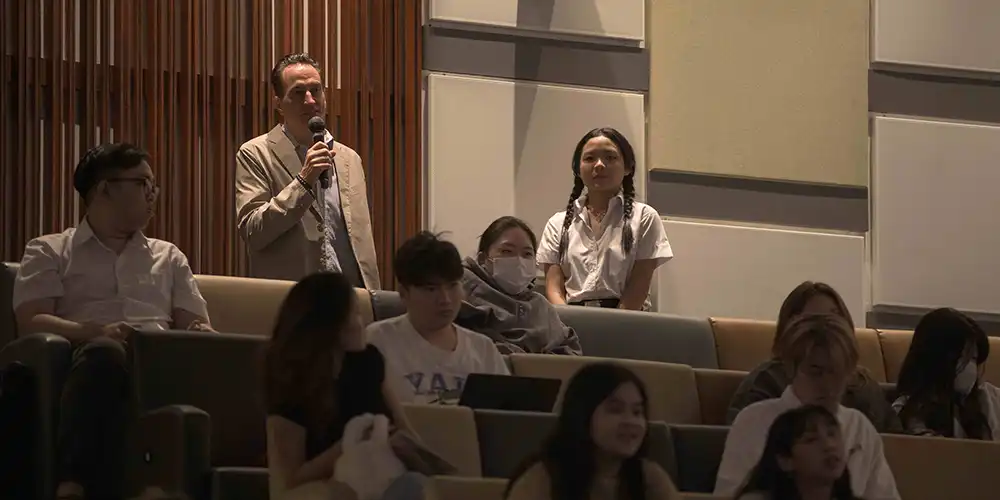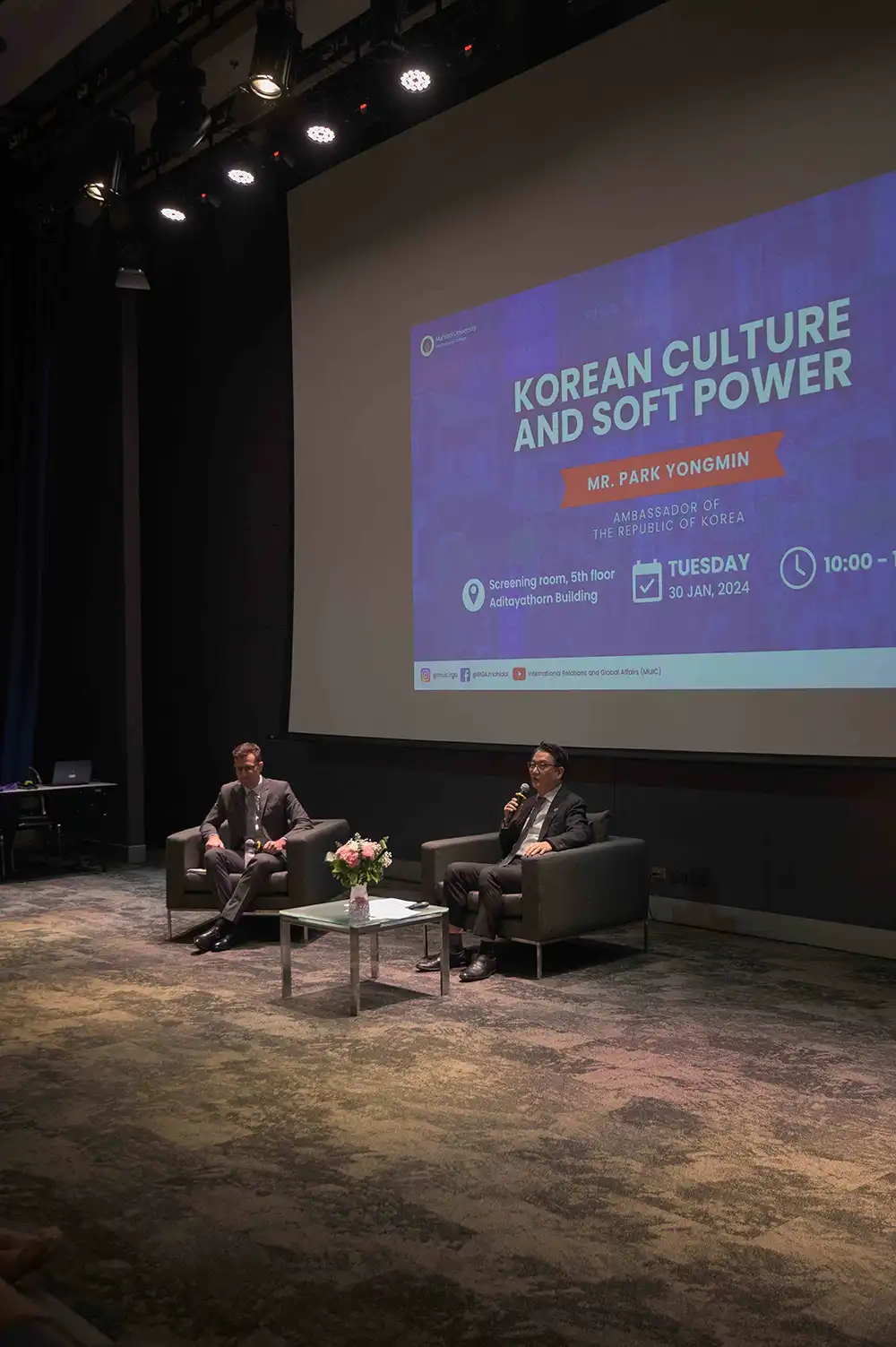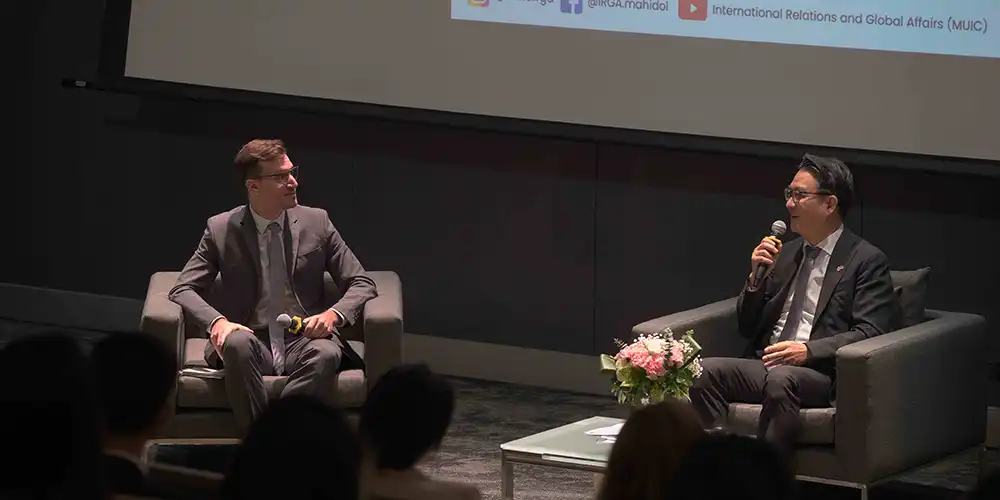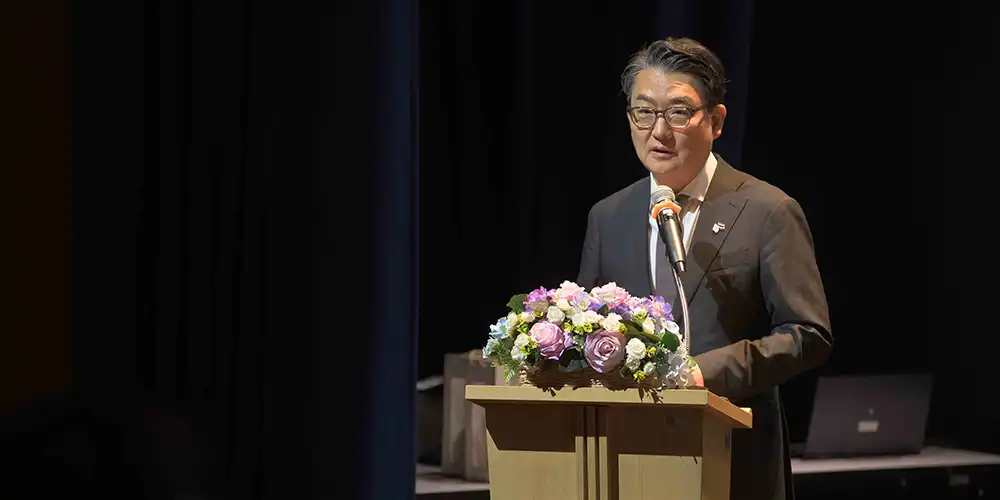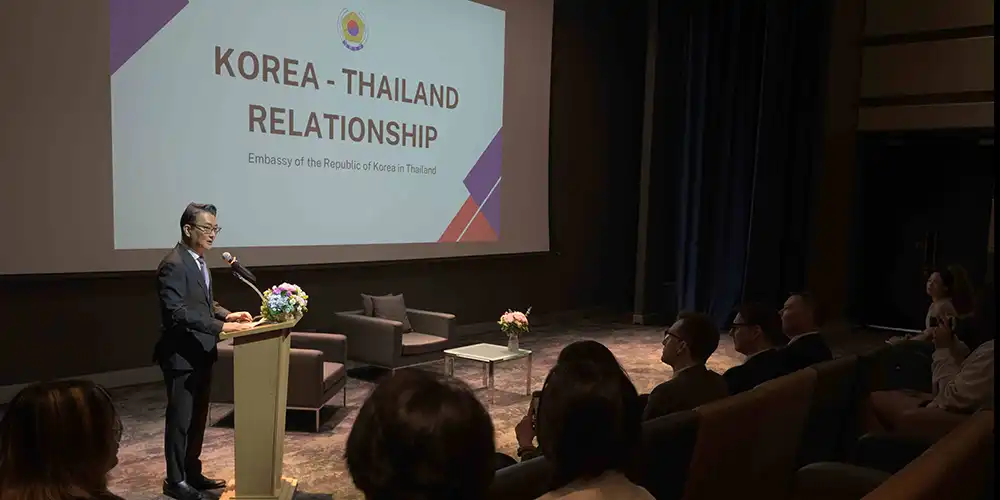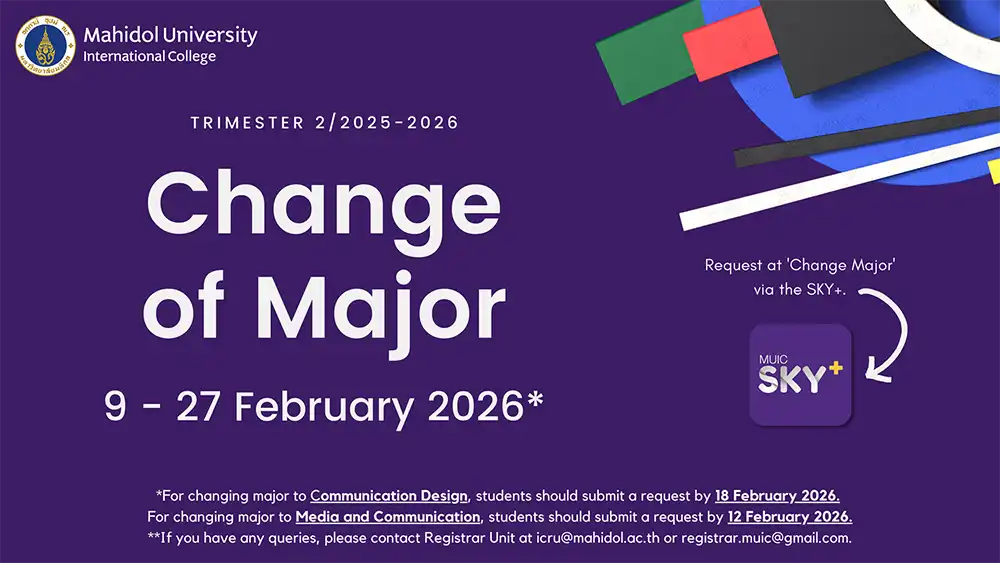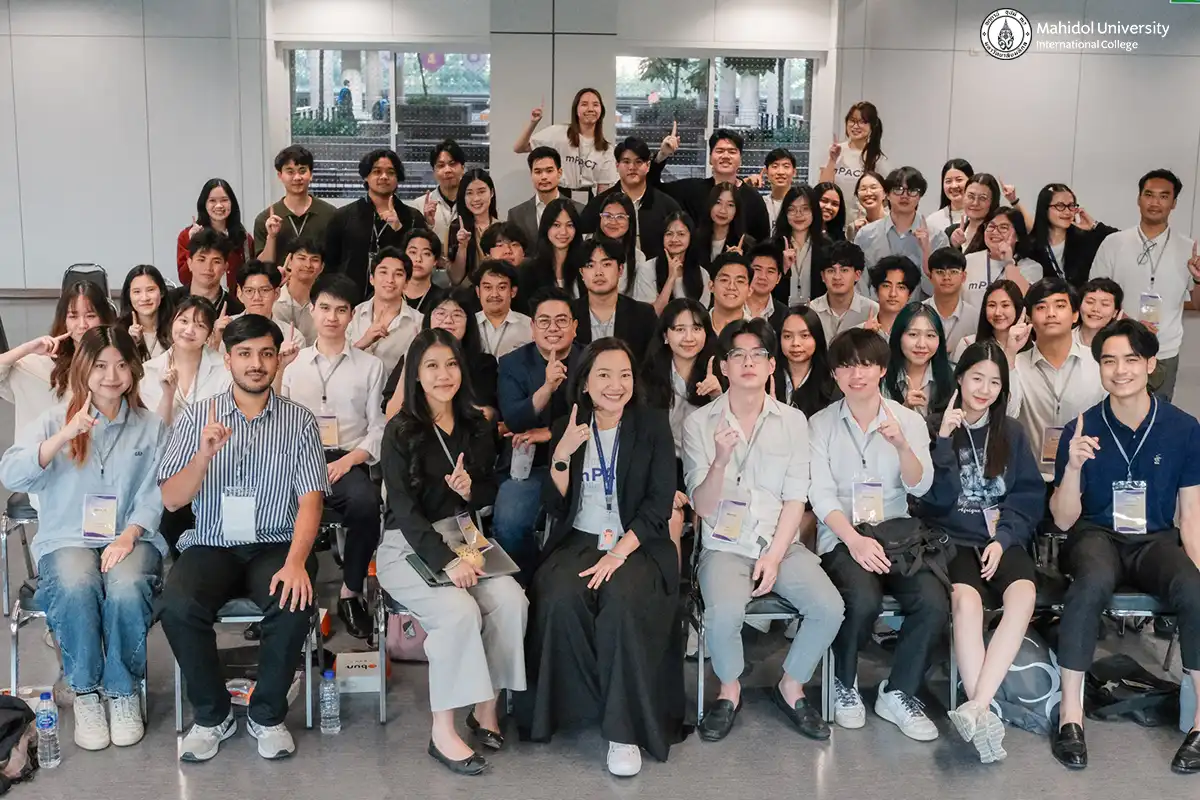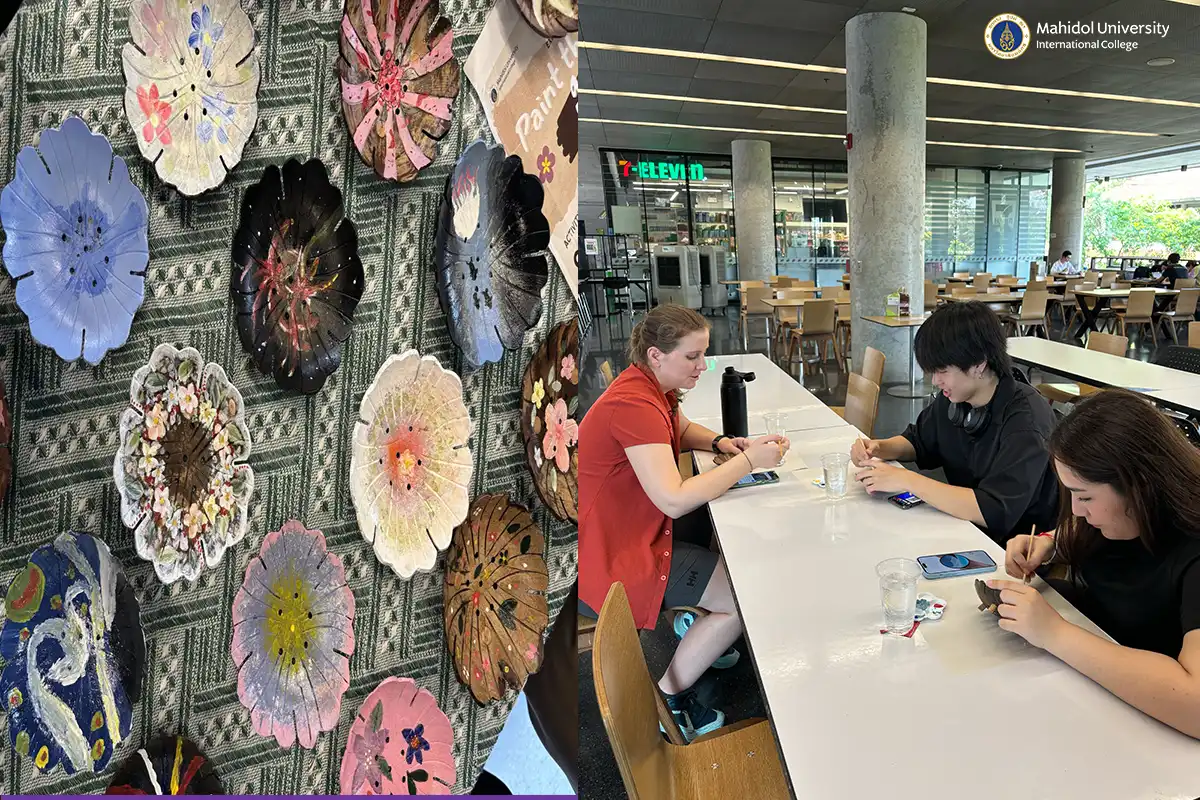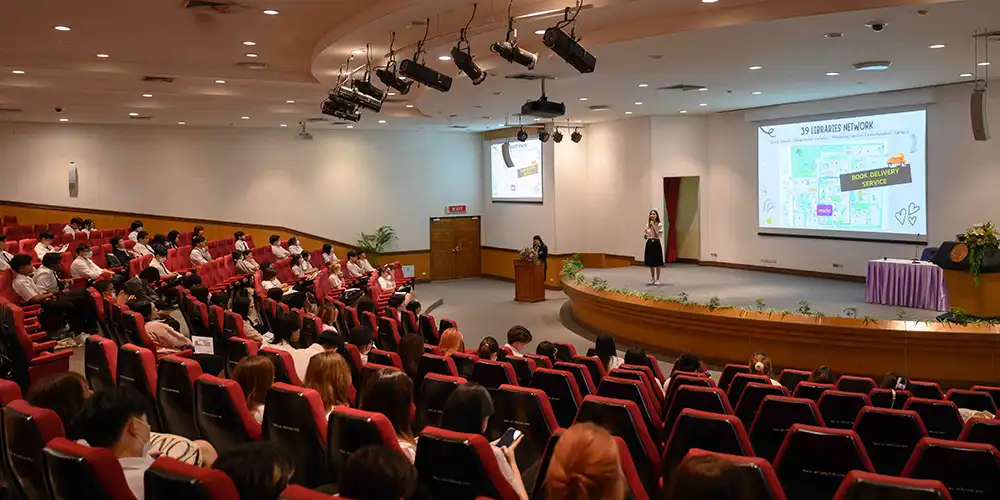Korean Ambassador Talks about Soft Power in IRGA Event
January 30, 2024 2024-01-30 8:17Korean Ambassador Talks about Soft Power in IRGA Event
Mahidol University International College’s (MUIC) International Relations and Global Affairs (IRGA) program organized a special talk on “Korean Culture and Soft Power” with H.E. Mr. Park Yongmin, South Korean Ambassador to Thailand as guest speaker.
The event was held at the Screening Room in Aditayathorn Building on January 30, 2024 from 10:00 am to 12:00 nn. Mr. Christian Oesterheld, IRGA Program Director, gave the welcoming remarks.
Ambassador Park gave a broad outline of Thailand and South Korea’s diplomatic history, noting that Thailand was one of the first countries in Asia to send military forces to support South Korea at the beginning of the Korean War.
He also highlighted the brisk trading relationship between the two countries, saying that Thailand is South Korea’s 6th biggest trading partner. Thailand, he added, is also among the top destinations for Korean tourists, with approximately 175 Bangkok-bound flights per week.
Regarding Thailand’s involvement in Korean soft power, Ambassador Park mentioned Lalisa Manoban, the Thai singer who is a member of Korean girl group Black Pink. He also added the Thai horror movie “Rang Zong” which received support from a South Korean company.
The ambassador traced back the history of Korean soft power back to the aftermath of the Korean War when South Korea’s economy was slowly recovering. The country back then had an export-oriented economy. Later on, the government started its industrialization program resulting in the production of Korean products including automobiles like Hyundai and Kia brands in the 1990s. This was followed soon after by electronic and communication products including Samsung mobile phones. Though the early products were derided by the West due to poor quality, the ambassador said Korean manufacturers slowly improved their products.
He said it was during 2000 to 2010 that South Korea began focusing on the so-called content industry which produced computer games, movies, TV dramas, and music entertainment that the country began to be noticed for its soft power.
